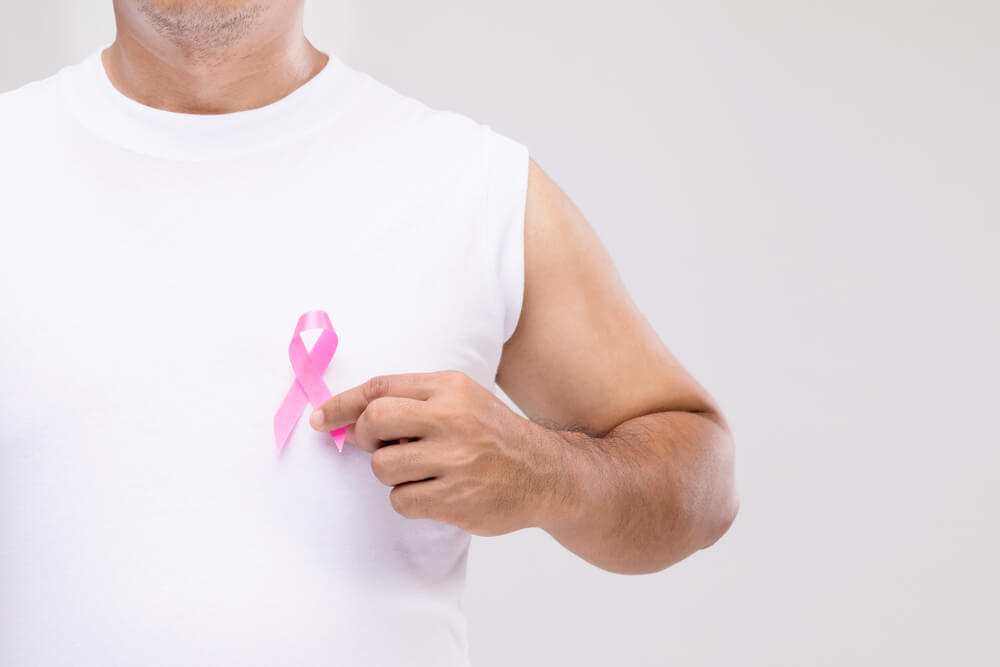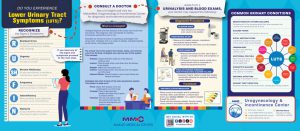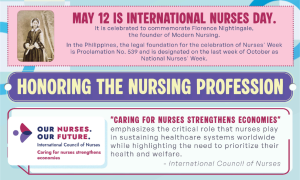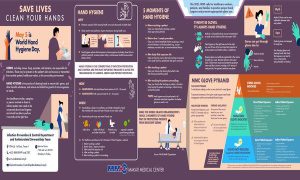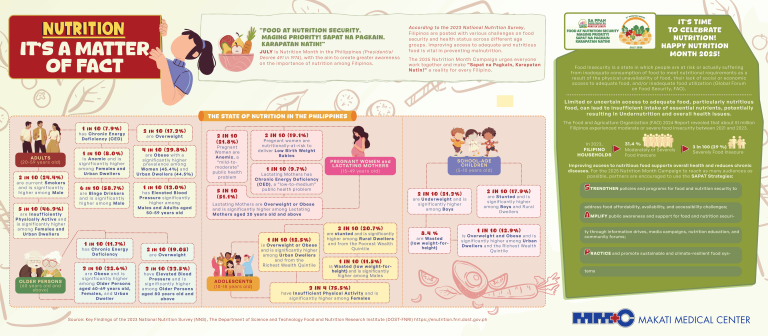Cancer is a disease that has affected many, either personally or through someone they know. It is an illness with no known cure, and the entire medical community is throwing its support and many of its resources into fully understanding this condition.
One of cancer’s defining traits is how cancerous cells can appear anywhere in the body. Every form of cell from the brain to the red blood cells can exhibit symptoms of cancerous growth at any moment. Fortunately, medical advances like CT scans, breast ultrasounds, and chemotherapy give patients a fighting chance.
Some cancers are specific to one gender, and two of the most common that fall under either side of the line are prostate cancer and cervical cancer. Some may consider breast cancer a disease that can only happen to women, but that is far from the case.
Breast cancer also afflicts men. However, there are clear differences between the two that make many think that only women are affected by the disease. Figuring out how this specific cancer manifests differently between men and women can help identify and effectively treat the disease at the earliest possible stage.
Female Breast Cancer
The biggest reason breast cancer is not commonly associated with men is its high prevalence among females. In 2020 alone, 27,163 Filipinas were diagnosed with the disease, with 9,926 losing their lives. Consequently, the International Agency for Research on Cancer (IARC) named breast cancer the third deadliest form of cancer among Filipinos, behind lung and liver cancers.
Symptoms
The first and most known symptom of breast cancer is a lump or area of thickened tissue around the breast. While not all lumps on the breast are cancerous, women who spot these lumps are advised to seek medical help right away and get tested.
Here are other tell-tale signs of female breast cancer:
- Shape and size changes in one or both breasts
- Discharge from either nipple, which may have streaks of blood
- Lumps or swelling on either armpit
- Rash in or around the nipples
- Changes in nipple appearance
Causes
Older women are more likely to get cancer, and the risk increases if the woman has no children or gives birth to her first child after 30. Women with family members that had the cancer are also likely to contract it. A breast cancer survivor can also experience a recurrence.
Other factors that affect the probability of breast cancer include being tall and overweight. Frequent alcohol consumption also affects the chances of cancer cell growth.
Diagnosis
Breast cancer is usually detected after the patient feels a lump or experiences any of the aforementioned symptoms. Once they have an appointment with a health professional, any of the four tests are suggested:
- A breast ultrasound creates sonograms—pictures of areas inside the breast—to check for any tumors.
- A diagnostic mammogram will show an X-ray image of the breast.
- An MRI scan will take detailed pictures of the breast for a more accurate diagnosis.
- The doctor conducts a biopsy for microscopic examination.
Treatment Options
There are multiple treatment options women can take to combat the growth of cancer cells in their breasts. One of the most common methods to treat breast cancer is chemotherapy, but even that treatment option has multiple approaches from Carboplatin to anthracyclines.
Other treatment options include radiation, hormone therapy, target therapy, immunotherapy, and surgery.
Male Breast Cancer
Breast cancer in men could be quite possibly devastating, given the rarity of the disease. After all, less than 1% of all breast cancer cases affect men. Moreover, it is not among the most prevalent cancers that afflicted 67,267 Filipino men in 2020.
However, men have the same breast tissues as women. A JAMA Oncology report revealed that men have a lower five-year breast cancer survival rate (77.6%) than women (86.4%). Despite being low, men are also at risk of contracting the disease, and it pays to know more about this deadly disease due to its high mortality rate.
Symptoms
Breast cancer symptoms among men are like the warning signs women experience. Any lump or swelling in the breast should alert men to contact a healthcare professional immediately. Other symptoms include nipple discharges, redness or flaky breast skin, irritation and dimpling of breast skin, nipple pain, and the nipple pulling in.
However, it is essential to remember that these symptoms do not immediately point to breast cancer. Therefore, avoid self-diagnosis and consult a medical professional about the concern.
Causes
There are multiple plausible reasons for men to develop breast cancer, but age is a more common risk factor. The risk increases as men age, but most male breast cancers are discovered among patients 50 years old and older.
Genetic mutations and family history also play a part in men getting breast cancer. Men with Klinefelter syndrome, a rare genetic condition, are also likely to deal with breast cancer. Diseases that affect the testes and liver, along with hormonal imbalance and obesity, also increase the probability of breast cancer.
Diagnosis and Cure
The diagnosis process for male breast cancer is like what female breast cancer patients must go through. Depending on the doctor, the male patient may do either one or all of the diagnostic techniques.
Treatment for male breast cancer is also similar to its female counterparts. One of the most common treatment strategies for early or localized breast cancer is a modified radical mastectomy or the surgical removal of the entire breast, including the areola, nipple, skin, and most axillary lymph nodes. In contrast, breast-conserving surgery with lumpectomy is paired with radiation therapy for others.
Live With Your Healthy Chest Puffed Out with Pride
Breast cancer poses a serious medical challenge, but this is not something everyone should completely dread. Recent medical advances are slowly but surely tipping the battle against cancer in our favor. Moreover, a healthy diet and an active lifestyle are vital in fighting breast cancer and other similar diseases.
Maintain good health by doing a routine medical check-up at Makati Medical Center. MakatiMed will be a valuable partner in keeping you and your family healthy and safe from breast cancer, from its state-of-the-art cancer treatment and diagnostic facilities such as breast ultrasound to its world-class health services from its medical staff.

